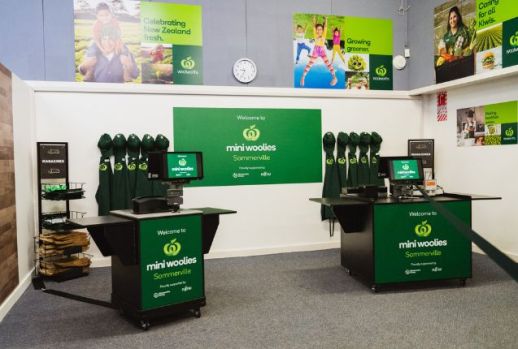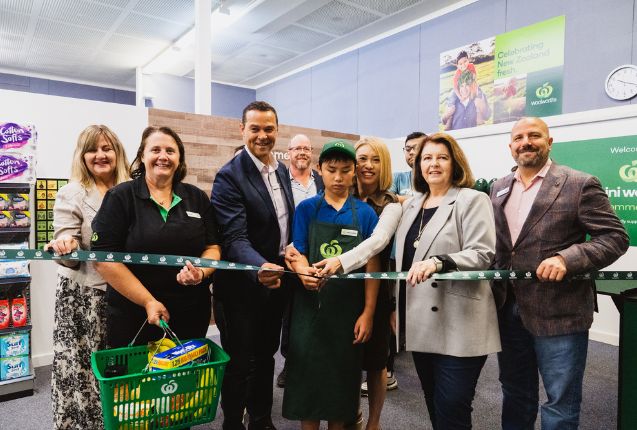Woolworths’ Mini Woolies programme has officially arrived in Aotearoa at Sommerville School in Tāmaki Makaurau, ushering in a new era of practical learning experiences for students with disabilities.
Established in Australia in 2018, the Mini Woolies programme is a collaborative effort between Woolworths Group and Fujitsu, aimed at bringing the dynamics of an actual supermarket into educational settings.
Students are able to access a learning experience that mirrors real-world retail operations and using “play” money, registers set up to scan grocery items and process sales, offering a realistic version of retail transactions.
Sommerville School caters to students with special educational needs, supporting individuals aged between 5 and 21 years across 15 sites in the eastern suburbs of Auckland. The new Mini Woolies facility, situated at their base school in Panmure, will provide students of diverse ages with opportunities to engage actively in the retail environment, whether by operating checkouts, restocking shelves, or preparing food.
“This is such an exciting initiative to be introduced in New Zealand,” says Belinda Johnston, Principal of Sommerville School.
“We believe this will have a life changing impact on our students and school community. Not only will our students acquire essential skills, but they will also grasp the real-life outcomes of their efforts in a supportive and secure environment.”
For Woolworths, the launch of the programme in New Zealand is a welcome addition to its Community Programme, which also includes food rescue and donation programmes worth over $12 million each year.

“We are thrilled to see the launch of the first New Zealand Mini Woolies,” says Spencer Sonn, Managing Director of Woolworths NZ.
“Since 2018, we have seen the programme grow across Australia, engaging thousands of people in a simulated supermarket experience that can be both a fun learning space and a pathway to seek new skills, independence and confidence. We are delighted to now have it in New Zealand.
“For us it is incredibly rewarding to provide this learning environment to schools. By creating safe and engaging learning environments where young people can practise real world skills in numeracy, literacy and communication, we hope they will develop their confidence and independence as they prepare for future experiences in the wider community.”



